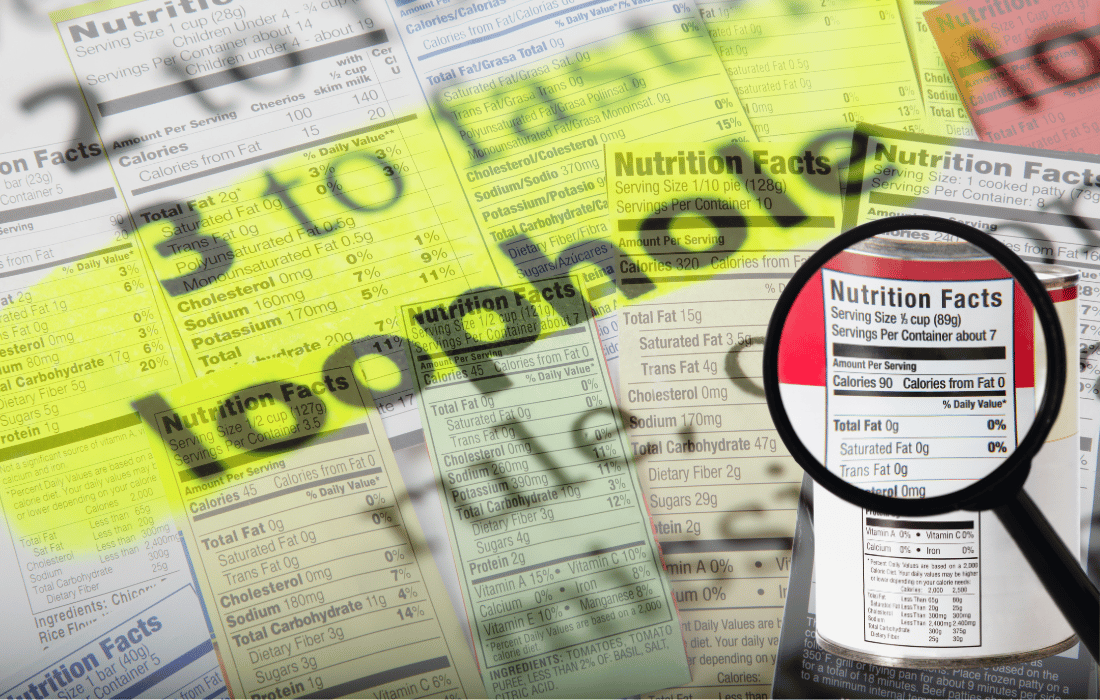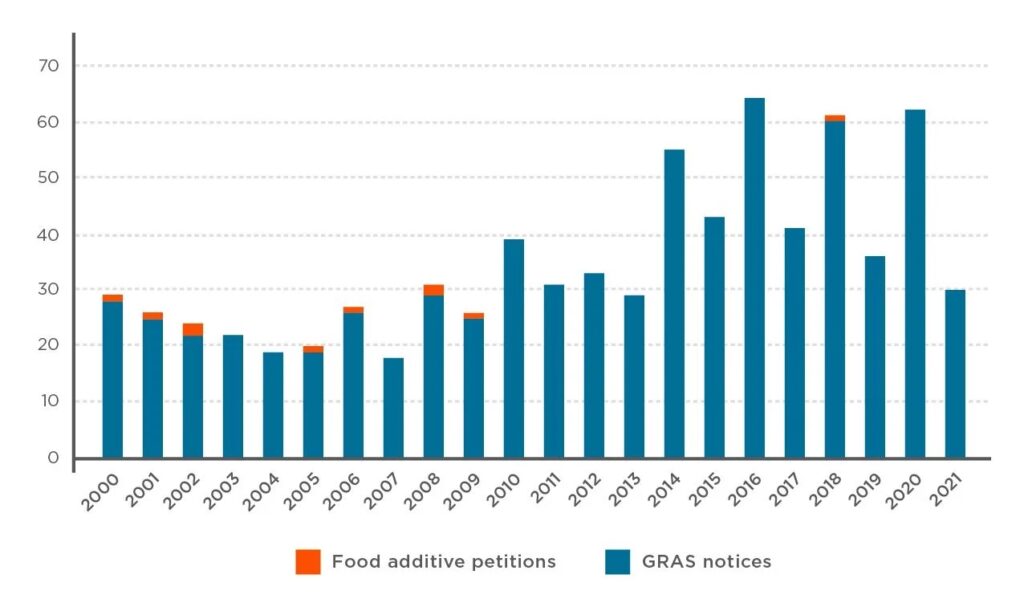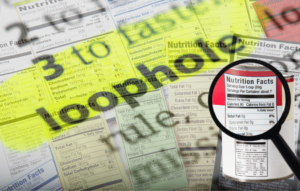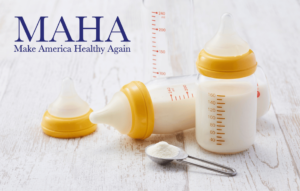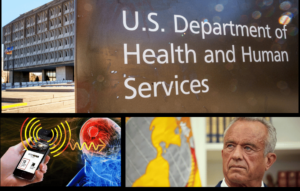For decades, the food industry has been allowed to self-regulate, making it easier for potentially harmful ingredients to find their way into the food supply. This lack of oversight, particularly in how food ingredients are approved, has led to an alarming gap in consumer safety. The GRAS loophole—an exception in U.S. food safety law that allows companies to declare their ingredients “Generally Recognized as Safe” (GRAS) without FDA approval—has been exploited for years. But now, Robert F. Kennedy Jr., Secretary of Health and Human Services (HHS), is taking action to close this loophole. In this comprehensive piece, we’ll delve into the GRAS loophole, the dangers it presents, and how the fake meat industry and other corporate practices have exacerbated the problem. We will also explore RFK Jr.’s efforts to fix this system and ensure a safer food supply for all.
Understanding the GRAS Loophole: What Is It?
The GRAS system was originally designed to streamline the approval process for food ingredients that were already widely recognized as safe, such as salt, vinegar, and baking powder. However, over the years, the system has evolved into a loophole that has been exploited by food manufacturers to bypass the FDA’s approval process for novel and untested chemicals. The current system allows companies to self-affirm the safety of their ingredients, meaning that manufacturers can declare an ingredient safe without ever informing the FDA or providing evidence for their claims.
This has led to an increasingly dangerous situation where thousands of food additives are being used without independent safety assessments. While the FDA encourages manufacturers to submit GRAS notices, the self-affirmation pathway allows ingredients to enter the food supply with little to no oversight. In fact, it’s estimated that 3,000 chemicals in the U.S. food supply have never been reviewed by the FDA.
The Current “Self-Affirmed” GRAS Process:
GRAS notice submissions: The FDA encourages manufacturers to submit new ingredients for review.
Self-affirmation: Manufacturers can declare ingredients safe on their own without FDA involvement.
Minimal public oversight: There is little transparency about what substances are being used in foods, as companies are not required to inform the FDA of self-affirmed GRAS ingredients.
This system, according to Jaydee Hanson from the Center for Food Safety (CFS), is akin to a company auditing its own finances—a recipe for corruption and disaster. Hanson rightly describes it as the “fox guarding the henhouse.”
Harmful Chemicals Allowed in Food Through GRAS
The GRAS system has allowed numerous potentially carcinogenic ingredients to enter the food supply without sufficient testing or transparency. For example:
BHA (Butylated HydroxyAnisole), classified as “reasonably anticipated to be a human carcinogen” by the National Toxicology Program, has been deemed GRAS despite its link to cancer.
BHT (Butylated HydroxyToluene), another common preservative, may disrupt endocrine function, causing thyroid changes and affecting animal development.
EGCG (Epigallocatechin gallate), a green tea extract, may increase the risk of cancer and was even flagged for concern by the FDA, but has still been classified as GRAS by the industry.
Partially hydrogenated oils, a major source of trans fats and associated with heart disease, were GRAS for decades. It wasn’t until 2015 that the FDA uncharacteristically revoked its GRAS status, acknowledging that removing trans fats from food could save thousands of lives each year.
For far too long, ingredient manufacturers and sponsors have exploited a loophole that has allowed new ingredients and chemicals, often with unknown safety data, to be introduced into the U.S. food supply without notification to the @FDA or the public. Eliminating the GRAS…
— Secretary Kennedy (@SecKennedy) March 11, 2025
The Flavor and Extract Manufacturers Association (FEMA)
An industry group known as the Flavor and Extract Manufacturers Association (FEMA) plays a significant role in the GRAS system, particularly for flavor ingredients. FEMA reviews and grants GRAS status to nearly all flavor additives used in the food industry. A troubling example of FEMA’s influence is the approval of seven carcinogenic flavor ingredients, which were later banned after public pressure from groups like EWG (Environmental Working Group) in 2018. These banned substances highlight the dangerous consequences of allowing industry insiders to oversee food safety decisions.
RFK Jr.’s Plan to Close the GRAS Loophole
On March 10, 2025, RFK Jr. directed the FDA to take immediate steps to eliminate the self-affirmed GRAS process. This directive is part of a larger effort to create radical transparency in food labeling and ensure that all ingredients used in food products are safe. Under RFK Jr.’s guidance, the FDA would require manufacturers to provide safety data and public notification before introducing new ingredients to the food supply.
Key Changes RFK Jr. Is Pushing For:
Elimination of self-affirmed GRAS: Manufacturers would be required to submit their safety data to the FDA for evaluation before marketing any new food ingredient.
Public transparency: The FDA would publish all GRAS notices, along with supporting data, so that consumers and independent organizations can evaluate the safety of food ingredients.
Increased oversight: By closing the GRAS loophole, RFK Jr. hopes to prevent harmful ingredients from entering the food supply unchecked.
RFK Jr. stated, “For far too long, ingredient manufacturers and sponsors have exploited a loophole that has allowed new ingredients and chemicals, often with unknown safety data, to be introduced into the U.S. food supply without notification to the FDA or the public.”
His aim is to restore consumer trust and protect public health by making food safer and more transparent.
The Dangers of Self-Certification: A History of Exploitation
The GRAS loophole isn’t just a minor flaw—it’s a fundamental breakdown in the system meant to protect consumers. In fact, the Center for Food Safety (CFS) has long criticized the GRAS system as “a weak regulatory process,” where companies do their own research and even hire their own reviewers to declare their ingredients safe. The fox guarding the henhouse analogy is fitting, as food manufacturers are, in many cases, deciding their own safety without independent oversight.
The Consequences of This Weakness:
Lack of independent review: The FDA doesn’t review or approve self-affirmed GRAS substances.
Industry-driven safety assessments: Safety determinations are often based on studies commissioned and paid for by the manufacturers themselves.
No cumulative safety assessment: The FDA cannot assess the cumulative impact of these ingredients because it has no centralized database tracking all GRAS substances in use.
The result? Dangerous chemicals that have been linked to a range of health issues—like cancer, hormone disruption, and neurological damage—remain in the U.S. food supply. The European Union, for example, has banned over 950 food substances that are still allowed in U.S. foods, including ingredients like potassium bromate and titanium dioxide. These substances have been identified as genotoxic carcinogens in some cases, but the FDA has not banned them due to the weak oversight system.
The Fake Meat Industry and the GRAS Loophole
The growing lab-grown meat industry promises to be a sustainable, healthier alternative to traditional meat, but hidden risks lurk beneath its shiny exterior. Products like Impossible Foods’ plant-based burgers use genetically engineered ingredients, such as soy leghemoglobin, to mimic the taste and texture of real meat. However, these ingredients are largely unregulated and potentially harmful, raising significant health and safety concerns.
At the heart of this issue lies the GRAS loophole, which allows food companies to self-approve the safety of new ingredients without independent oversight by the FDA. This regulatory failure has resulted in the approval of ingredients like soy leghemoglobin, which lacks adequate long-term safety testing. Worse, the FDA’s approval process for such ingredients relies on short-term studies conducted by the very companies that stand to benefit from their approval.
Key Health and Safety Concerns with Lab-Grown Meat
Lab-grown meats, while marketed as more sustainable, come with significant health risks that have not been adequately assessed.
Unfamiliar ingredients: Lab-grown meats rely on genetically engineered proteins, such as soy leghemoglobin, which humans have never consumed. This raises concerns about allergic reactions, toxic effects, and long-term health impacts.
Insufficient safety testing: Impossible Foods conducted its own short-term study, which showed some concerning effects on rats, including reproductive disruptions and kidney issues. However, the study did not meet FDA requirements for long-term toxicity testing, and the adverse effects were dismissed as non-adverse.
GRAS approval process: The GRAS system allows companies to declare their products safe without FDA review, and manufacturers don’t have to provide safety data for public inspection. This leads to potentially unsafe ingredients entering the food supply without oversight or transparency.
Global Differences: How U.S. and European Food Safety Regulations Differ
One of the most troubling aspects of the GRAS loophole is the stark contrast between U.S. and European food safety regulations. The FDA has approved many ingredients banned in Europe, including synthetic biology products used in lab-grown meats.
950 banned substances: According to KFF Health News Reports, at least 950 ingredients in U.S. foods are not allowed in Europe, where food safety regulations are stricter. The EU often bans substances that have not been adequately tested for human safety, while the U.S. allows them to enter the market without long-term evaluations.
Toxic additives: Ingredients such as titanium dioxide and potassium bromate are commonly used in the U.S. but have been banned in Europe due to their potential health risks, including links to cancer and chromosomal damage. Yet, these substances continue to show up in U.S. food products.
Lack of oversight: While Europe requires independent testing and re-evaluation of ingredients, the U.S. FDA has no legal mandate to re-assess the safety of ingredients that were approved decades ago, leaving the door open for outdated, potentially harmful ingredients to remain in circulation.
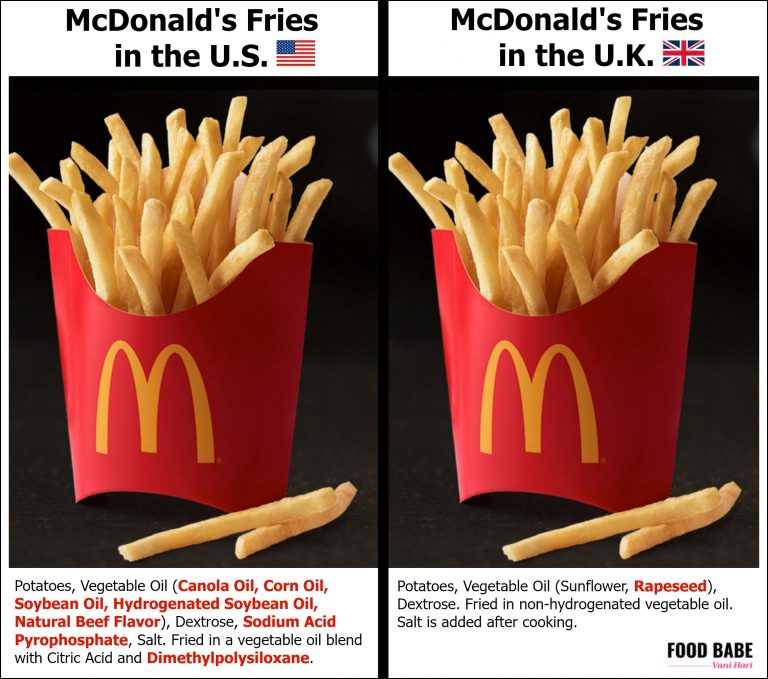
The Bigger Picture: Corporate Influence and Political Power
The GRAS loophole is not just a regulatory flaw—it’s a symptom of the larger problem of corporate influence over the FDA. Food companies have an enormous amount of political power, which they have used for decades to weaken food safety regulations. This influence has allowed potentially harmful substances to be added to food without adequate safety testing.
How Corporate Influence Affects Food Safety:
Lax regulations: The GRAS loophole allows companies to bypass the FDA’s approval process, even for novel ingredients.
Hidden ingredients: Many additives, such as artificial colors, flavors, and preservatives, remain hidden from consumers because companies can use vague terms like “spices” or “natural flavors” on product labels.
Conflicts of interest: Corporate influence over food safety regulations is a significant issue, with private interests like those of Bill Gates and other big investors in the lab-grown meat industry pulling the strings behind the scenes. Gates’ investments in fake meat companies and his influence over organizations like the Reagan-Udall Foundation have raised concerns that corporate interests compromise the FDA.
For decades, the food industry has lobbied to keep food safety regulations weak, creating a system that prioritizes profit over consumer health. RFK Jr. and other food safety advocates are now working to change that.
The Role of Private Interests in Food Safety Regulations
While the FDA itself does not accept corporate money directly, private interests still play a significant role in influencing food safety regulations through organizations like the Reagan-Udall Foundation. This nonprofit was created to support FDA research but has received large donations from organizations like the Bill & Melinda Gates Foundation, which also invests in companies involved in the lab-grown meat industry.
FDA’s reliance on private foundations: The Reagan-Udall Foundation raises funds from industry-backed nonprofits, creating a conflict of interest that undermines the FDA’s independence. This setup allows the food industry to influence safety standards, ensuring that products like lab-grown meats can enter the market with minimal scrutiny.
Lack of transparency: Bill Gates, one of the biggest investors in lab-grown meat companies, has pushed for policies that favor synthetic biology and genetically engineered foods, which raises questions about whether the FDA is truly looking out for consumer safety or catering to corporate interests.
Summary: A Step Toward Safer Food
The GRAS loophole has allowed dangerous and untested ingredients to infiltrate the U.S. food supply, with potentially harmful consequences for public health. With RFK Jr.’s directive to close this loophole and enhance transparency in the food supply, there is hope for a safer future. By requiring manufacturers to submit safety data and notify the FDA before introducing new ingredients, we can ensure that the food we eat is truly safe.
However, closing the GRAS loophole is just one piece of the puzzle. To truly safeguard consumer health, we need stronger oversight, clearer labeling, and greater corporate accountability. As we continue to navigate the changing landscape of food production—especially with the rise of lab-grown and plant-based meats—RFK Jr.’s efforts to overhaul the regulatory system will be a crucial step toward a healthier and more transparent food supply. The time for action is now.

